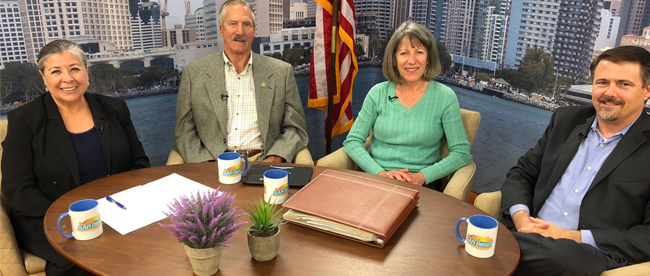The U.S. is on the verge of the largest generational wealth transfer in our nation’s history.
Over the next several decades, baby boomers will pass down an estimated $30 trillion in assets to their children and grandchildren.
As aging boomers consider what to include in their estate plans, it’s important they keep in mind a succession plan for charitable assets too.
Donor-advised funds (DAFs) are the fastest-growing giving vehicle in the U.S., according to the National Philanthropic Trust, with 285,000 individual DAF accounts, a 6.9 percent year-over-year increase. An 80-year-old charitable vehicle, DAFs now account for about 8.3 percent of all individual giving as estimated by Giving USA.
[Tweet “Donor advised funds account now for about 8.3% of all individual giving as estimated by @GivingUSA”]
Why are DAFs on the rise?
They allow philanthropists to be actively involved in the grantmaking process without having to worry about managing the money. DAFs receive the maximum tax benefits and the donor is not responsible for the tax filings.
At The San Diego Foundation, we manage and invest the funds, but donors advise The Foundation about preferences regarding grant recipients, grant amounts and fund permanence.
Intersection of Family Philanthropy and Estate Planning
Effective estate planning includes decision-making related to the future of DAFs and other charitable assets. Assigning children as DAF successor advisors is a common course of action for fund founders who wish for their family legacy to continue in perpetuity.
As noted in a recent study by The Philanthropic Initiative, successful philanthropic families share goals and dreams with relatives, identify common values, and focus on the positive impact giving has on their communities and their families. As a result, children feel a sense of pride and connection with their parents, while parents give children and other family members an opportunity to build upon their legacy.
In January, two successor advisors at The Foundation, Janie DeCelles and Bob Fletcher, joined our President & CEO Kathlyn Mead on Facebook Live to discuss their families’ philanthropic histories, passions and impact. Both acknowledged that giving as a family is an important way to strengthen their family bonds and keep everyone engaged. Principal and Co-owner at Blankinship & Foster, Rick Brooks, CFP®, CFA® also joined the conversation to provide insight on including charitable assets in estate plans throughout the conversation.
What are the key principles to successful family philanthropy? How can families set up future generations for more impactful giving?
You can learn more by watching the interview. The conversation served as a perfect starting point for anyone wanting to strengthen their family’s philanthropy and revisit charitable assets in their estate plan.




